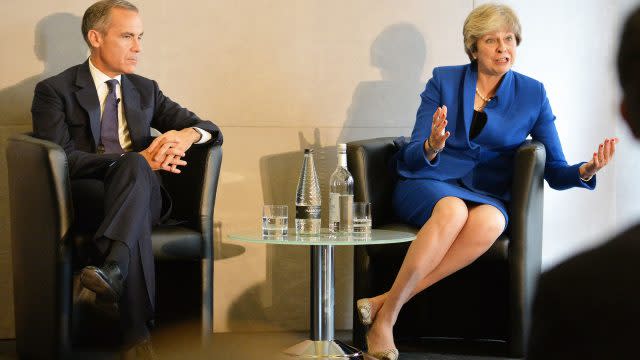Carney warns banks over 'reckless lending' as interest rates set to rise

The governor of the Bank of England warned of the dangers of "reckless" lending to consumers as he gave a fresh signal that a rise in interest rates is on the cards.
Mark Carney said officials were worried that some lending by banks had been "a little frothy", with a 10% rise in consumer debt.
While overall household debt was coming down relative to income, the Bank chief said there was a "pocket of risk" around credit card borrowing and other personal loans.
Thanks for tuning in to day 1 of our #20YearsOn Conference. Tomorrow: @Lagarde, Adam Posen and Willem Buiter. https://t.co/JJDmXexiPvpic.twitter.com/9qZzbDFIrJ
-- Bank of England (@bankofengland) September 28, 2017
"What we are worried about is a pocket of risk, a risk in consumer debt - credit card debt, debt for cars, personal loans. That has begun to grow fairly rapidly - about 10%," he told BBC Radio 4's Today programme.
"They (the banks) have been taking too much credit for a relatively good economic environment and not been as disciplined as they should in their underwriting standards and their pricing on this debt.
"We are worried about the shift from what has been responsible lending to reckless lending. We have the prospect or the possibility of that developing.
"Some of it is getting a little frothy and should be addressed. We have the tools to address it."
Mr Carney said that while interest rates were set to rise if the economy continued on its present course, it would happen in a gradual way.

"What we have said is that if the economy continues on the track that it has been on - and all the indications are that it is - in the relatively near term you can expect that interest rates will increase," he said.
"We are talking about just easing a bit off the accelerator to keep with the speed limit of the economy. So interest rate increases when they come - when and if they come - will be to a limited extent and in a gradual way."
Mr Carney played down fears that a rise in interest rates from their historic low of 0.25% would lead to borrowers defaulting on their loans.
"Since the financial crisis, British households have paid down a tremendous amount of debt. The level of debt burden relative to income in this economy has gone down by 20 percentage points," he said.
He did however highlight concerns at the Bank about the impact of Brexit on the City, and particularly the derivatives market.
He said the need to get the issue right in the final settlement underlined the importance of the two-year transitional period proposed by Prime Minister Theresa May.
"In the derivatives market there is a series of contracts. They are tens of thousands of contracts involving hundreds of institutions, European and UK, and the legal validity of those contracts post-Brexit is in question," he said.


